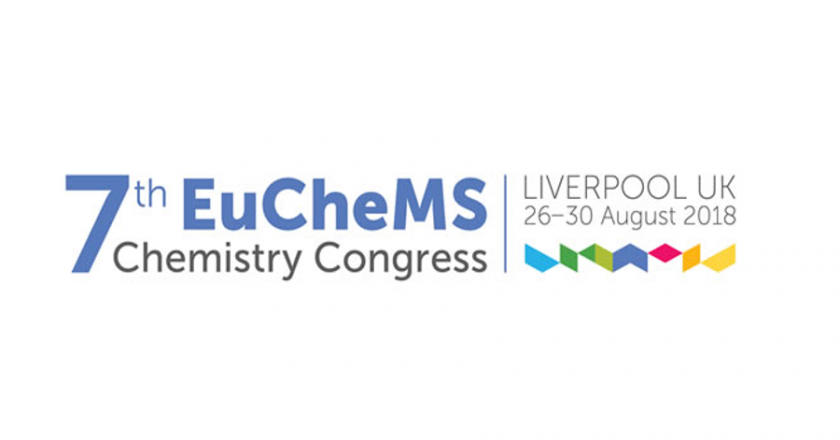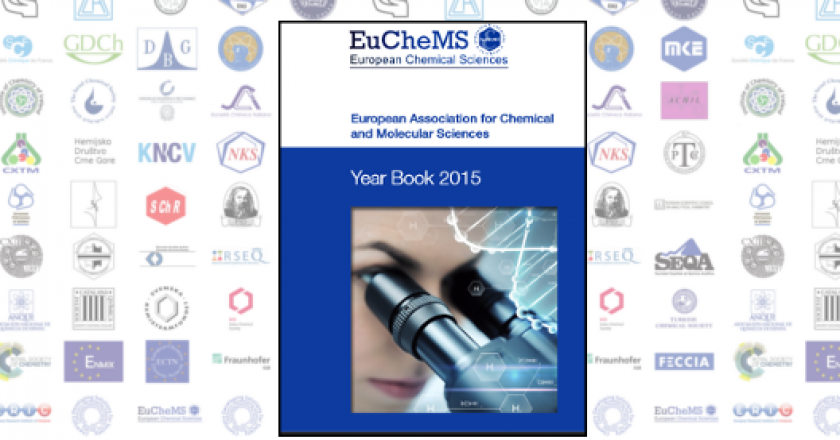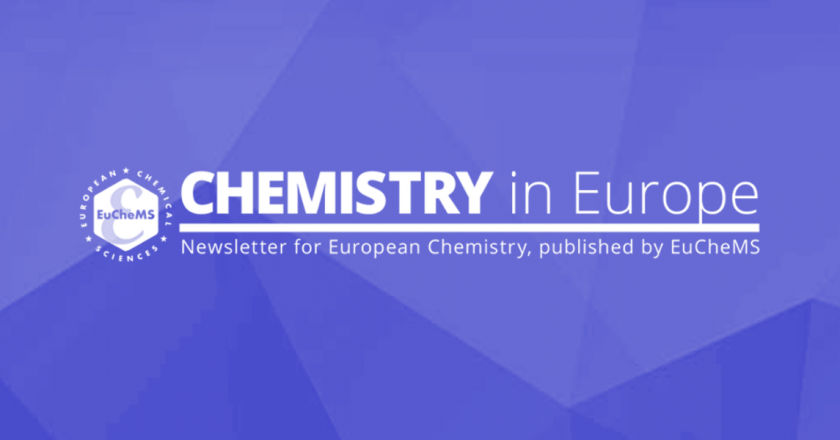The European Union and China agreed to boost their research and innovation cooperation under Horizon 2020 with a new package of initiatives targeting the areas of food, agriculture and biotechnologies, environment and sustainable urbanisation, surface Transport, safer and greener aviation, and biotechnologies for environment and human health, fields in which chemistry plays a crucial role. This is one of the outcomes of the 3rd EU-China Innovation Co-operation Dialogue, organised earlier this in the margins of the 19th EU-China Summit, and co-chaired by Carlos Moedas, Commissioner for Research, Science and Innovation, and Wan Gang, China’s Minister of Science and Technology.
Source: http://ec.europa.eu/
Council Defines its Negotiating Stance on Circular Economy
On 19 May 2017, the Council of the European Union agreed on a negotiating mandate to start negotiations with the European Parliament on all four legislative proposals on waste, which are part of the Circular economy package submitted by the Commission by the end of 2015. Before these proposals are approved both the European Parliament and the Council must give their green light. Negotiations for an agreement are expected to focus on a number of outstanding elements, including the definitions, the setting of binding targets and their calculation rules, end-of-waste criteria, extended producer responsibility schemes and waste prevention. EuCheMS has organised two circular economy related workshops – From Waste to Health and Protecting Endangered Elements.
Source: http://www.consilium.europa.eu/
American Chemical Society on the USA Withdrawal from the Paris Climate Agreement
The American Chemical Society (ACS) has recently expressed its disappointment regarding the plans to withdraw the United Stated of America from the Paris Climate Agreement, and the Society asks that this and future administrations reconsider this decision. The agreement, signed by 197 countries in 2015 and ratified by 147, is needed to reduce emissions of greenhouse gases and mitigate and adapt to climate change. According to ACS Executive Director and CEO Thomas Connelly Jr., “Climate change represents a real and current threat to our economy, health and welfare”.
Source: https://www.acs.org/
Car Emission Controls: Council Agrees of Reforms
The Council of the European Union has agreed on a general approach to reform the system of type-approval and market surveillance for motor vehicles. This major reform will modernise the current system, adapt it to new technologies available on the market and improve control tests on car emissions data, a process in which analytical chemistry takes part. All member states agreed to improve the harmonised implementation of the rules across the EU so as to reduce the possible differences in interpretation and application by national type-approval authorities and technical services. They also agreed that more effective market surveillance rules should apply to better detect non-compliance at an early stage.
Source: http://www.consilium.europa.eu/
Youth Initiative: Strategy for High Quality, Inclusive, Future-Oriented Education
The European Commission has adopted earlier this month new initiatives on school and higher education. The overall aim of these initiatives is to help Member States provide high quality and inclusive education for all young people through a series of concrete actions, so they acquire the knowledge and skills needed to participate fully in society, are able to respond to new opportunities and challenges opened up by for instance globalisation and technological change, and can tailor their education to the needs of the labour market. This package of initiatives includes a proposal on graduate tracking to help Member States collect information on what graduates do after their studies, an important indicator to analyse labour market needs which EuCheMS has recently collected in the field of chemistry and is currently being analysed under the 2nd Employment Survey for European Chemists.
Source: http://europa.eu/
European Parliament Gives Green Light to PRIMA
The European Parliament has given its support to the Partnership on Research and Innovation in the Mediterranean Area (PRIMA), an initiative aiming to develop much-needed solutions for a more sustainable management of water and agro-food systems. The main objective of the ten-year initiative (2018 – 2028), which is partly funded by EU’s research and innovation programme Horizon 2020, is to develop solutions to improve water availability and sustainable agriculture production in a region heavily distressed by climate change, urbanisation and population growth. The partnership currently consists of 19 participating countries: Algeria, Croatia, Cyprus, Egypt, France, Germany, Greece, Israel, Italy, Jordan, Lebanon, Luxembourg, Malta, Morocco, Portugal, Slovenia, Spain, Tunisia and Turkey.
Source: http://ec.europa.eu/
European Parliament Defends more Funding for Post H2020
In a non-legislative resolution, Members of the European Parliament (MEPs) presented their assessment of the Horizon 2020 programme in which they state that H2020 must be primarily grant-based, that no more cuts should be made to the programme and that ‘excellence’ should remain the essential evaluation criterion while ‘impact’ should include economic and social effects. The resolution also included some recommendations for 9th Framework Programme for Research and Innovation (FP9). Recommendations include an increased overall budget of EUR 120 billion for FP9; the reintroduction of the two stage evaluation; separation of defence research from civil research in the next Multiannual Financial Framework (in which EU budget is broadly defined), providing two different programs with two different budgets; and priority to funding for climate change research.
Source: http://www.europarl.europa.eu/
MEPs Confront Commissioner on Monsanto Papers
Members of European Parliament stated at a plenary session earlier this month that correspondence from Monsanto (owner and producer of Roundup, a widely used herbicide based on the active substance glyphosate) which was recently disclosed, has shed doubt on the credibility of a number of Monsanto-sponsored studies. The studies were part of the evidence used by the European Food Safety Authority (EFSA) and the European Chemicals Agency (ECHA) to evaluate the safety of glyphosate but according to Health Commissioner Vytenis Andriukaitis, EU agencies concluded that allegations stemming from “Monsanto papers”, if true, would have no impact on safety assessment conclusions. Some MEPs stressed that the substance’s safety assessment should be strictly science-based and that the process should steer clear of emotions. Others called for the launch of an independent review on glyphosate. Many MEPs agreed that low-risk herbicides should be better promoted.
Source: http://www.europarl.europa.eu/
Horizon 2020 Evaluations
On 29 May 2017, the Commission published the interim evaluation of Horizon 2020, required by Article 32 of the regulation establishing Horizon 2020. The interim evaluation aims to contribute to improving the implementation of Horizon 2020 in its Work Programme 2018-2020, to provide the evidence-base for the report of the H2020 High Level Group on maximizing the impact of EU Research and Innovation programmes and to inform the design of the post H2020 Framework Programme. EuCheMS answer to the public consultation which preceded this report is available here.
Source: https://ec.europa.eu/

7th EuCheMS Chemistry Congress

EuCheMS Year Book 2016 Now Online
The 2016 edition of EuCheMS Year Book is now online here.

Chemistry in Europe
A sustainable Arctic: Innovative Approaches
15 – 16 June 2017 Oulu, Finland
Website: http://europa.eu/
ERC 10th Anniversary Celebrations
13 – 21 June 2017 Brussels, Belgium
Website: http://europa.eu/
COFUND 2016 Marie Skłodowska-Curie Actions (MSCA) Beneficiaries’ Day
7 June 2017 Brussels, Belgium
Website: http://europa.eu/
World Circular Economy Forum 2017
5 – 6 June 2017 Helsinki, Finland
Website: http://ec.europa.eu/
14th International Workshop on Separation Phenomena in Liquids and Gases
4 – 9 June 2017 Stresa, Italy
Website: http://europa.eu/
EU Green Week 2017
29 May – 2 June 2017 Malta, Belgium, Germany
Website: http://europa.eu/
Workshop of the Role of Science and Technology Parks and Incubators in Innovation Ecosystems
23 – 24 May 2017 Thessaloniki, Greece
Website: http://europa.eu/
Responsible Research and Innovation in the Health Industry
18 – 19 May 2017 Brussels, Belgium
Website: http://europa.eu/
How Can We Connect Responsible Research and Innovation with Honest Regulation in Europe? Reflections on Scientific Knowledge as Political Economy
18 May 2017 Ispra, Italy
Website: https://ec.europa.eu/
EuCOMC 2017 – 22nd European Conference on Organometallic Chemistry
9 – 13 July 2017 Amsterdam, The Netherlands
Website: http://www.eucomc2017.amsterdam/
MMM2017 – X International School on Organometallic Chemistry “Marcial Moreno Mañas”
5 – 7 July 2017 Ciudad Real, Spain
Website: http://eventos.uclm.es/
ISSNP 2017 – International Summer School on Natural Products
3 – 7 July 2017 Naples, Italy
Website: http://www.issnp.org
EICC-4 – 4th EuCheMS Inorganic Chemistry Conference
2 – 5 July 2017 Copenhagen, Denmark
Website: http://www.eicc-4.dk
